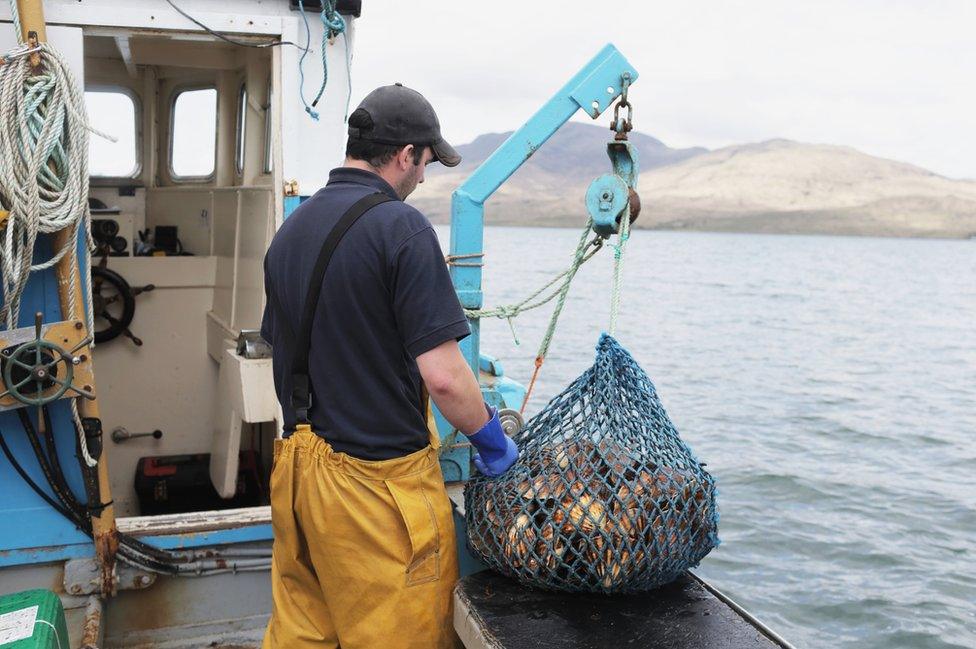Environment campaigners launch legal bid over scallop dredging
- Published

Open Seas said scallop dredging still had open access to more than 90% of Scotland's inshore waters.
Environmental campaigners have launched a legal bid against the Scottish government over "damaging" scallop dredging.
Open Seas, which works to protect the marine ecosystem, said licensing of the practice was "trashing the sea bed". It accused ministers of "regulatory negligence" by allowing it.
The group has used underwater cameras to record habitats on Scotland's coast.
A petition for a judicial review will go to the Court of Session on Monday.
Open Sea's lawyers argue that licensing scallop dredging and bottom-trawling - fishing methods which involve either metal rakes or weighted nets being dragged across the seabed - are unlawful where it causes damage to marine habitats.
The group previously raised concerns with Scottish ministers, with correspondence on the issue going back over several years.
Open Seas director Phil Taylor said: "The seabed is a public asset, but tragically it is being degraded to the detriment of both the environment and the many inshore fishermen who depend on it.
"Not all fishing is the same - some methods like scallop dredging cause profound damage to the sea bed and need much better regulation."
Metal rakes or weighted nets are dragged across the seabed in scallop dredging and bottom-trawling
Until 1984 bottom-trawling was banned in all waters within three miles of shoreline, but the practice is now legal in these areas.
Open Seas is campaigning for an updated version of the inshore limit to be introduced.
Mr Taylor added:"Ministers are required by law to make decisions in accordance with the .
"That plan requires that activities in Scotland's seas must 'not result in significant impact on the national status of priority marine features'.
"This regulatory negligence is both trashing our seabed and undermining the future viability of inshore fisheries."
The Scottish government said it was "not appropriate" to comment on a live legal case.